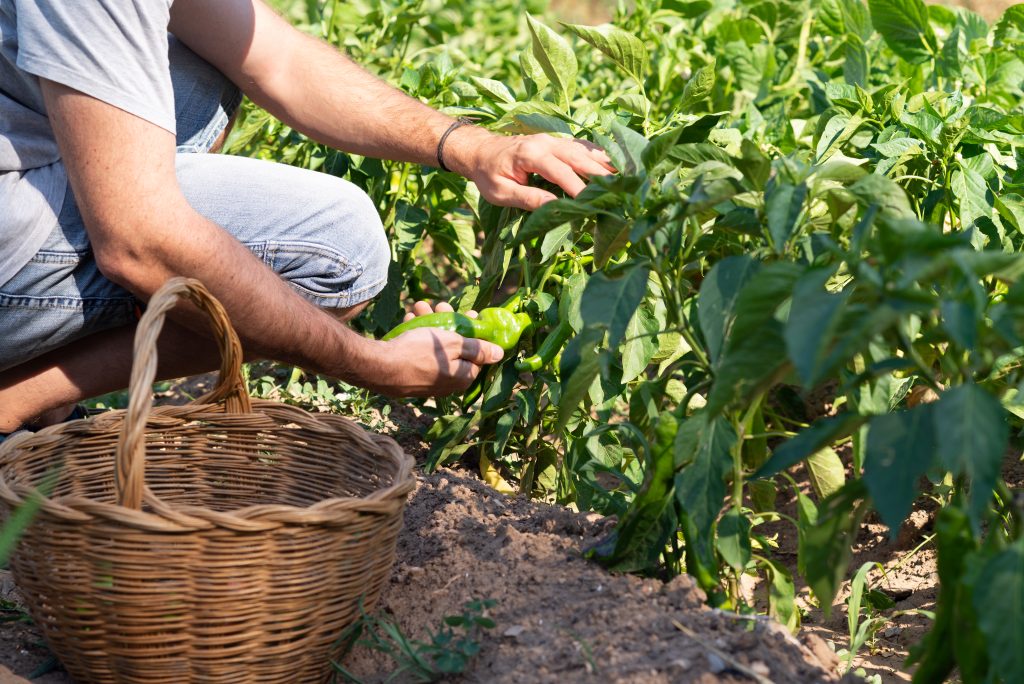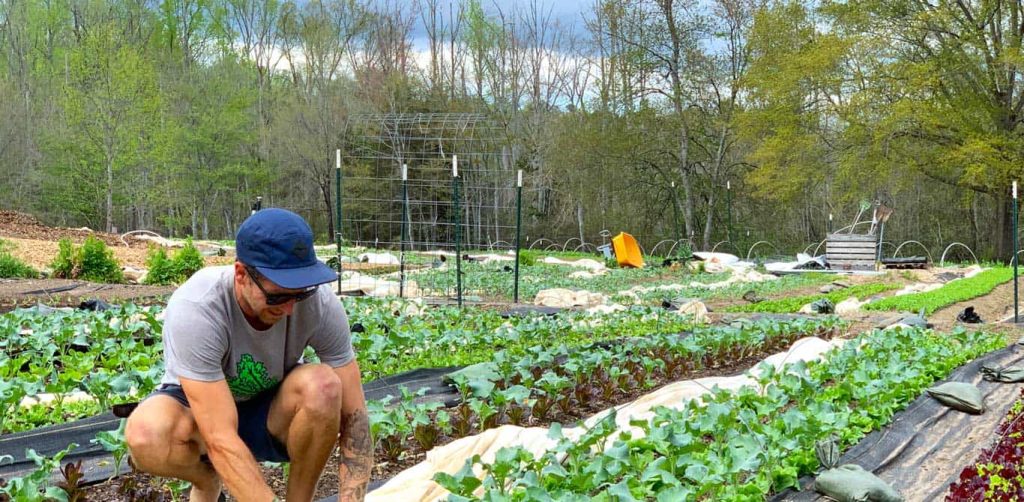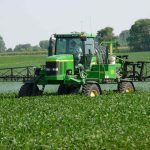Imagine a world where your farm thrives naturally, free from synthetic chemicals. Organic farming promises this possibility, offering a unique approach to agriculture that can be particularly enticing for small farmers like you.
But is it the right path for your farm? With alluring benefits and potential drawbacks, organic farming presents a fascinating choice. This article will delve into the pros and cons of organic farming specifically for small farmers, helping you weigh the options.
Whether you’re aiming for healthier produce or striving to protect the environment, understanding these factors will empower you to make an informed decision. Stick with us as we uncover how organic farming can impact your farm’s future, financially and sustainably. Your farm’s potential transformation might be just a few scrolls away.
Benefits Of Organic Farming
Organic farming offers small farmers healthier soil and reduced chemical use. It can improve biodiversity and provide better market prices. Yet, it requires more labor and knowledge, which can be challenging for some.
Organic farming offers numerous advantages for small farmers, promising not only a healthier environment but also potentially more sustainable farming practices. By focusing on natural processes, organic farming can enhance soil fertility, promote biodiversity, and improve crop resilience. It can also provide small farmers with a unique market advantage, tapping into the growing consumer demand for organic products.Improved Soil Health
Organic farming emphasizes the use of natural fertilizers like compost and manure, which improve soil structure. This approach enhances water retention and nutrient content, supporting healthier crops. I remember when I switched to organic methods, the soil was visibly richer, and the plants thrived without synthetic additives.Environmental Benefits
Organic farming reduces pollution by eliminating chemical pesticides and fertilizers. This practice protects water sources and wildlife, contributing to a healthier ecosystem. As a small farmer, you can take pride in knowing your farming methods support the planet’s well-being.Market Opportunities
There’s a growing demand for organic products, offering small farmers a lucrative market. Organic produce often commands higher prices, allowing you to potentially earn more. Consumers are willing to pay a premium for food they trust is chemical-free and sustainably produced.Enhanced Biodiversity
Using diverse crop rotations and natural pest control, organic farming encourages a rich variety of plant and animal life. This biodiversity supports a more resilient farming system, reducing reliance on external inputs. On my farm, I’ve noticed an increase in beneficial insects and birds, which naturally manage pests.Resilience To Climate Change
Organic methods can help build resilience against climate change by improving soil health and reducing erosion. Healthy soils sequester more carbon, which can mitigate climate effects. This is not just a benefit for the environment but also a strategic move for your farm’s future.Healthier Food
Organic farming tends to produce food with fewer contaminants, offering potentially higher nutritional value. By growing organic, you’re providing your community with cleaner, safer food options. Imagine the satisfaction of knowing you’re feeding your neighbors the best produce possible. Does organic farming sound like a viable path for your farm? Consider these benefits and how they align with your farming goals. The journey to organic farming can be rewarding, not just for your farm, but for the community and environment you support.
Challenges Faced By Small Farmers
Organic farming offers a promising avenue for small farmers seeking sustainable and environmentally friendly agricultural practices. However, transitioning to organic farming comes with its own set of challenges. As a small farmer, you may find yourself navigating through obstacles that seem daunting but are crucial for success. Understanding these challenges is the first step towards overcoming them.
Limited Access To Resources
Small farmers often face restrictions when accessing essential resources. Finding organic seeds and inputs can be more challenging than conventional options. You might also struggle with acquiring the knowledge needed to meet organic standards. What strategies can you use to overcome these barriers?
Higher Initial Costs
Transitioning to organic farming can require a significant upfront investment. Organic certifications, soil amendments, and specialized equipment can add up quickly. Are the long-term benefits enough to justify these initial costs? Evaluating your budget carefully can help you make informed decisions.
Market Competition
Competing in the organic market can be tough. Larger farms often have the advantage of scale, making it difficult for small farmers to compete on price. It’s essential to find your niche. Can you identify unique selling points that will attract local customers?
Weather Dependency
Organic farming heavily relies on favorable weather conditions. Without chemical interventions, crops can be more susceptible to diseases and pests. How can you mitigate these risks? Diversifying crops or employing organic pest control methods might be effective solutions.
Labor Intensity
Organic farming often requires more manual labor. Tasks like weeding and pest management can be time-consuming. You might find yourself working longer hours than expected. Are there ways to streamline these processes and reduce labor costs without compromising quality?
As a small farmer, facing these challenges head-on can lead to rewarding outcomes. By considering practical solutions and asking the right questions, you can turn potential setbacks into stepping stones for success. Are you ready to take on the organic farming journey with determination and resilience?
Economic Impact On Small Farms
Organic farming offers small farmers better soil health and fewer chemical expenses. Higher costs and certification challenges remain significant drawbacks. Balancing these pros and cons is crucial for economic survival.
Organic farming can be a game-changer for small farmers, but it’s not without its challenges. Many small farms are considering the shift to organic methods due to potential economic benefits. However, the transition requires weighing both the positives and negatives. How does organic farming impact the financial landscape for these farmers?Initial Investment Costs
Organic farming often demands a higher initial investment. You may need to invest in organic seeds, natural fertilizers, and pest control methods. These can be more expensive than conventional options. Some farmers find the higher quality and environmental benefits worth the cost. Consider if your budget can handle these upfront expenses. Can you offset them with potential price premiums on organic products?Market Demand And Premium Pricing
Organic products frequently command higher prices in the market. As a small farmer, this can mean increased revenue. Consumers are willing to pay more for organic produce, valuing its health and environmental benefits. However, securing a steady market can be challenging. Are you prepared to actively market your products and build a loyal customer base?Certification Challenges
Obtaining organic certification is a rigorous process. It requires time, effort, and money. You must adhere to strict guidelines and undergo regular inspections. This certification can open doors to new markets, but it’s not an easy road. Weigh the long-term benefits against the immediate challenges. Is the potential market expansion worth the effort?Operational Costs And Labor
Organic farming can be more labor-intensive. You might need more hands-on deck for tasks like weeding and pest control. This can lead to increased operational costs. Think about your current labor capacity and budget. Can you manage the additional workload and costs effectively?Long-term Financial Stability
Organic farming can offer long-term economic stability. Healthier soil can lead to better yields over time. Reduced reliance on chemical inputs can lower costs in the long run. Consider the potential for a sustainable income. Are you ready to invest in the future of your farm? In your journey toward organic farming, you need to balance these economic factors carefully. What steps can you take today to set yourself up for success tomorrow?
Environmental Considerations
Organic farming has become increasingly popular among small farmers. It offers a way to produce food sustainably. This method can have various environmental impacts. It is important to weigh its benefits and drawbacks. Small farmers often face unique challenges. Understanding these environmental considerations can guide their decisions.
Benefits Of Soil Health Improvement
Organic farming reduces chemical usage. It helps maintain soil health. Natural fertilizers promote biodiversity in the soil. This leads to healthier crops. Small farmers benefit from better soil. It reduces erosion and increases water retention.
Reduction In Pollution
Organic practices minimize pollution. Fewer chemicals enter waterways. This protects local ecosystems. Small farmers contribute to cleaner environments. Reduced pollution safeguards wildlife habitats. It also improves air quality.
Challenges In Pest Management
Organic farming limits pest control options. Natural methods may be less effective. Farmers face challenges managing pests. Crop yields can be affected. Small farmers may struggle with increased pest issues.
Impact On Biodiversity
Organic farms often host diverse species. This promotes ecosystem balance. Biodiversity supports healthy environments. Small farmers benefit from natural pest control. Varied plant life attracts beneficial insects.
Energy And Resource Use
Organic farming can require more labor. It often uses fewer machines. Energy consumption may be lower. Small farmers rely on manual methods. Resource use varies depending on farm size.

Conclusion
Organic farming offers real benefits for small farmers. Healthier crops. Less chemical use. Better soil. But challenges exist. Higher costs. More labor. Market competition. Farmers must weigh these factors. Decide what suits them. Organic farming isn’t easy. Requires dedication. Community support helps.
Sharing knowledge. Building networks. Success takes time. Patience is key. Consider your goals. Evaluate resources. Organic methods can work. Not for everyone. Choose wisely. Balance is crucial. Profit and sustainability matter. Think long-term. Care for the environment. Healthier produce. Happier customers.
Organic farming has potential. Explore possibilities. Make informed decisions.



